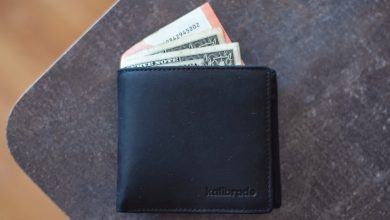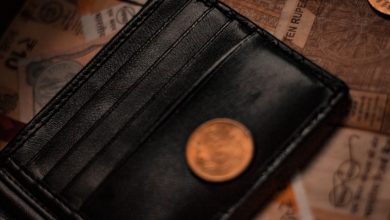Tips for Using Wallets in Decentralized Finance (DeFi)

- Understanding the Basics of Decentralized Finance (DeFi)
- Choosing the Right Wallet for DeFi Transactions
- Securing Your Wallet: Best Practices for DeFi Users
- Managing Multiple Wallets in the DeFi Space
- Exploring Wallet Integration with DeFi Platforms
- Staying Updated on the Latest Wallet Innovations in DeFi
Understanding the Basics of Decentralized Finance (DeFi)
Decentralized Finance, commonly referred to as DeFi, is a financial system that operates without central financial intermediaries such as banks or brokerages. In DeFi, financial transactions are conducted peer-to-peer using smart contracts on blockchains. This innovative approach to finance offers users greater control over their assets and financial activities.
One key feature of DeFi is the use of decentralized wallets to store, manage, and transact various cryptocurrencies and digital assets. These wallets interact with decentralized applications (dApps) on blockchain networks, enabling users to access a wide range of financial services such as lending, borrowing, trading, and more.
Understanding the basics of DeFi is essential for users looking to leverage the benefits of decentralized wallets. By familiarizing yourself with concepts such as smart contracts, blockchain technology, and decentralized exchanges, you can navigate the DeFi ecosystem with confidence and make informed financial decisions.
Choosing the Right Wallet for DeFi Transactions
When it comes to engaging in decentralized finance (DeFi) transactions, choosing the right wallet is crucial. Your wallet serves as the gateway to interacting with various DeFi protocols and assets. It’s essential to select a wallet that aligns with your needs and preferences to ensure a seamless DeFi experience.
One important factor to consider when choosing a wallet for DeFi transactions is security. Look for wallets that offer robust security features, such as two-factor authentication and encryption. Additionally, opt for wallets that allow you to maintain control of your private keys, as this adds an extra layer of security to your transactions.
Another key consideration is the compatibility of the wallet with the DeFi protocols you intend to use. Some wallets may support a wide range of protocols, while others may be more limited in their capabilities. Make sure to choose a wallet that is compatible with the specific DeFi platforms you plan to interact with to avoid any compatibility issues.
Furthermore, consider the user interface and user experience of the wallet. A user-friendly interface can make it easier for you to navigate the wallet and execute transactions efficiently. Look for wallets that offer a seamless and intuitive user experience to streamline your DeFi activities.
In addition to these factors, it’s essential to consider the reputation and track record of the wallet provider. Opt for wallets that have a strong reputation in the DeFi community and a history of secure and reliable service. Doing your due diligence on the wallet provider can help you make an informed decision and select a trusted wallet for your DeFi transactions.
By taking the time to carefully consider these factors, you can choose a wallet that meets your needs and enhances your overall DeFi experience. Remember to prioritize security, compatibility, user experience, and reputation when selecting a wallet for your DeFi transactions.
Securing Your Wallet: Best Practices for DeFi Users
When it comes to using wallets in decentralized finance (DeFi), securing your funds is of utmost importance. Here are some best practices for DeFi users to keep their wallets safe:
- Use a hardware wallet to store your cryptocurrencies securely offline.
- Enable two-factor authentication (2FA) on your wallet for an extra layer of security.
- Make sure to use a unique and strong password for your wallet that is not easily guessable.
- Avoid sharing your private keys or seed phrases with anyone to prevent unauthorized access to your funds.
- Regularly update your wallet software to ensure you have the latest security features and bug fixes.
By following these best practices, you can help protect your funds and minimize the risk of falling victim to hacks or scams in the DeFi space.
Managing Multiple Wallets in the DeFi Space
Managing multiple wallets in the DeFi space can be a challenging task, but it is essential for diversification and security purposes. One approach to managing multiple wallets is to keep a detailed record of each wallet’s address, private key, and associated assets. This will help you keep track of your holdings and easily access them when needed.
Another strategy for managing multiple wallets is to use a wallet management tool that allows you to store and access all your wallets in one place. These tools often come with additional features such as portfolio tracking, asset management, and security measures to protect your funds.
It is also crucial to keep your wallets secure by using strong passwords, enabling two-factor authentication, and regularly updating your wallet software. Additionally, consider diversifying your assets across different wallets to reduce the risk of a single point of failure.
Exploring Wallet Integration with DeFi Platforms
When exploring wallet integration with DeFi platforms, it is important to consider the compatibility and functionality of your chosen wallet. Ensure that your wallet supports the DeFi platforms you are interested in using, as not all wallets are compatible with every platform. Additionally, familiarize yourself with the process of connecting your wallet to DeFi platforms to ensure a seamless user experience.
Another important aspect to consider is the security of your wallet when integrating it with DeFi platforms. Look for wallets that offer robust security features such as multi-factor authentication and encryption to protect your assets from unauthorized access. It is also recommended to use hardware wallets for an added layer of security when interacting with DeFi platforms.
Furthermore, keep in mind the fees associated with using wallets in DeFi platforms. Some wallets may charge transaction fees for interacting with DeFi protocols, so be sure to understand these costs before integrating your wallet. Additionally, consider the gas fees associated with transactions on the blockchain, as these can vary depending on network congestion.
In conclusion, exploring wallet integration with DeFi platforms can provide you with access to a wide range of decentralized financial services. By choosing a compatible and secure wallet, understanding the fees involved, and following best practices for connecting your wallet to DeFi platforms, you can make the most of the opportunities available in the decentralized finance space.
Staying Updated on the Latest Wallet Innovations in DeFi
Staying updated on the latest wallet innovations in DeFi is crucial for users looking to maximize their experience and security. By staying informed about new developments and features, you can ensure that you are utilizing the most advanced tools available in the decentralized finance space.
One way to stay updated on wallet innovations is to follow reputable blogs and news sources that cover DeFi topics. These sources often provide in-depth analysis and reviews of new wallet features, making it easier for you to understand how they can benefit your financial activities.
Additionally, joining online communities and forums dedicated to DeFi can also help you stay informed about the latest wallet innovations. These platforms allow you to engage with other users and experts in the field, who may share valuable insights and recommendations on which wallets to use.
Attending webinars, conferences, and events focused on decentralized finance is another great way to learn about the latest wallet innovations. These events often feature presentations and discussions on cutting-edge technologies and trends in the DeFi space, giving you a firsthand look at what’s new in the world of wallet development.
Overall, staying updated on wallet innovations in DeFi requires active participation in the community and a willingness to learn about new technologies and features. By staying informed and engaged, you can ensure that you are using the best wallets available to enhance your decentralized finance experience.



